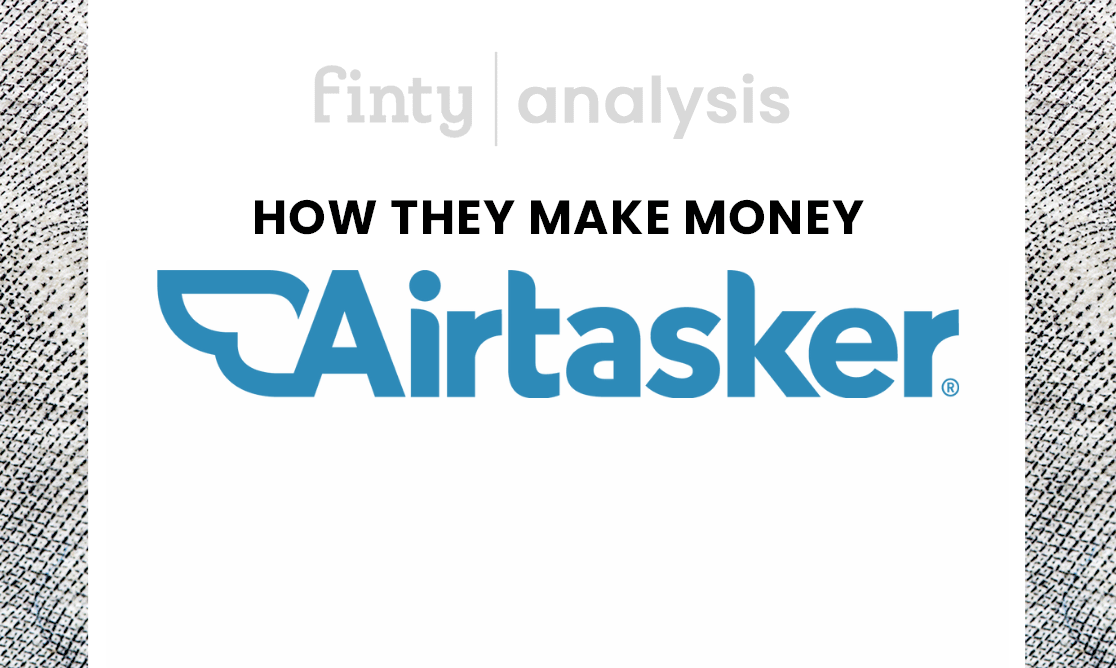- Airtasker is an online marketplace for outsourcing services and tasks.
- Listed company on the Australian Stock Exchange (ASX) under the ticker $ART.
- Makes money by charging service fees for connecting users.
Airtasker is an Australian company that was founded in 2012. It is an online marketplace where "Taskers" (local services providers) can connect with people seeking their services. The company went public in 2021, listing on the Australian Securities Exchange (ASX).
Users can choose from various industries and services, including carpentry, home repairs, pet sitting, home or business clearance services, and many more. The company earns by charging a service fee for connecting the two parties involved in the transaction.
Scroll down for more on how the company got started and what it does to generate revenue and value for shareholders.

Coming up next
What does Airtasker do?
Launched by Jonathan Lui and Tim Fung in 2012, Airtasker is an online platform that connects people looking for help with service providers in their local area. Service providers are known as "Taskers."
The company generates revenue from the booking and service fees they charge taskers operating on the platform.
Since its launch, Airtasker has paid out more than $1 billion in revenue to taskers, of which there are now more than 500,000.
Most of the services on Airtasker relate to home maintenance, gardening and landscaping, removals and delivery, and a range of trade services.
How does Airtasker work?
Taskers can register through the platform, listing their services on the site. Users must also register and enter payment details before using the site.
Users enter information like the location of the job, the due date for completion, a job description, and the budget they have available for the task. Airtasker will present a list of Taskers who can complete the task for them.
Taskers on the platform must bid on a per-project basis in order to get work. The user selects their preferred provider from the offers they receive.
Taskers have public profiles containing information on their particular skill set and reviews from previously completed jobs, which assists users to make a decision.
When a user accepts a Tasker's offer, Airtasker holds the payment in escrow, releasing it to the Tasker after the user approves its release.
How Airtasker makes money
Airtasker makes money by charging booking and service fees. Taskers pay a commission to Airtasker, which ranges from 10% to 20%. The percentage charged depends on the Tasker's previous work history on the platform. Established users pay lower fees.
Here is more detail on Airtasker's business model and how they make money.
B2B service fees
Airtasker works with private individuals, but it also has several partnerships with corporates like Ikea and eBay. It also assists companies like Uber, Airbnb, and TripAdvisor with tasks.
Airtasker charges a service fee to cover the costs of insurance, fraud protection, secure payments, customer support, and other general operating expenses.
Service fees are tiered, decreasing with experience.
- Bronze tier: 20%.
- Silver tier: 16.4%.
- Gold tier: 12.7%.
- Platinum tier: 10%.
Booking fees
Airtasker also charges users a booking fee for its services in select markets. Prices for booking fees start at AU$2.90.
Booking fees are capped for larger, more expensive tasks at AU$24.90.
Airtasker uses the booking fees to help cover its daily operations and generate profit.
Future growth engine
Airtasker relies on the network effect for its growth. The company continues to grow in the Australian market, and it has plans to make its platform globally available.
Currently, the company operates in Australia, the UK, Ireland, Singapore, the United States, and New Zealand. There are many large markets with growing middle classes where it does not currently operate, for example, Europe and South East Asia.
Apart from geographic expansion, Airtasker can grow by developing more partnerships with other businesses:
- Partner with retailers for installation services (like they already have with Ikea).
- Embed their marketplace in other software services using their existing API.
- Develop and sell services for their Taskers, for example, payment processing, booking systems, job management, calendaring, etc.
- Sell advertising space on their website and monetise their first-party user data.
Competitors
Airtasker faces stiff competition from other online platforms connecting users to services. Some of the examples of its competitors are the following:

